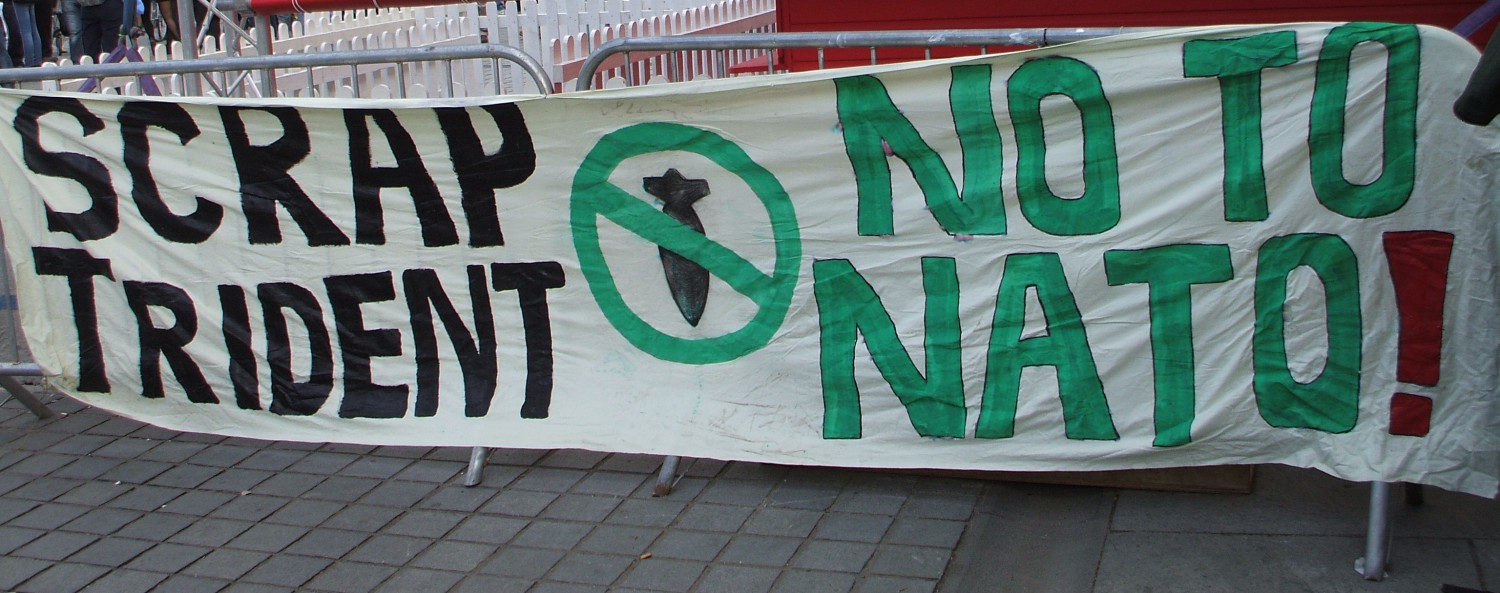Summerhall Arts Centre partnered with the British Army at this years Edinburgh Fringe Festival in a series of events under the banner Army @ the Fringe.
In August Edinburgh Stop the War and a number of other individuals and organisations wrote to Summerhall asking them to reconsider the partnership.
Summerhall’s response was:
‘For Summerhall, the initiative is an opportunity to reach new audiences and to present more work by artists who are making interesting, high quality and nuanced performance which engages with some big issues. I’m not sure if you’ve had chance to, or would want to, see any of the shows at Army @ the Fringe, but they are very much not acting as any kind of recruitment message – the programme includes work which deals with PTSD (Wired and Shell Shock), which satirises military recruitment and militarism (Cezary Goes to War) and which investigates and critiques the treatment of Commonwealth soldiers in the British Army (inValid Voices).
In our conversations with the Army they have always been very clear that the initiative is about engagement and not about recruitment, and nothing they have done or said in the course of working with them has given me any reason to doubt them on this.’
Edinburgh Stop the War thinks this is not good enough and we have written to Summerhall to say so. We know others have also contacted Summerhall to ask them to end their partnership with the army and if you haven’t done so we’d encourage you to do it now.
Here’s Edinburgh Stop the War’s response to Summerhall
‘We want to make it clear that we do not want to stifle debate, quite the contrary. However, debate takes place in a context. As we write British officers are helping the Saudi coalition select targets in Yemen, scene of one of the worst humanitarian catastrophes in human history. Public opinion on nuclear weapons is consistently opposed to government policy. Two decades of military interventions in the Middle East and Afghanistan have ignored the democratic wishes of the majority in Scotland and the rest of the UK. The impact of these events has been to depress recruitment and the army has responded with strenuous efforts to legitimise and normalise the policies of successive British Governments in order to redress this. In our view Army @ The Fringe is another of these attempts that sits alongside newly invented ‘traditions’ like Armed Forces Day, glossy publicity and a renewed emphasis Army visits to schools and youth groups. So of course the publicity for Army @ The Fringe doesn’t directly plug recruitment, although it does foreground the ARMY BE THE BEST logo familiar from TV and cinema recruitment campaigns.
It’s not possible to have an open and critical debate when there are gross imbalances of power. The British Army is the military arm of the British state. It has access to money, resources and communications channels that dwarf those available to its critics. The Government makes it’s case for militarism and it doesn’t need help from community based arts associations. What next: Summerhall partnering with The Department of Work and Pensions @ The Fringe airbrushing Universal Credit and the explosion of foodbanks?
We welcome public discussion of PTSD and militarism and it would be tremendous if Summerhall could provide a space for events that allowed this to happen. However, partnering with the Army and holding the events at the Hepburn House Army reserve centre is not the way to do this. Many people, including many who don’t share Stop the War’s view of the Army will be unhappy about the choice of venue and if they do attend less confident about expressing their views.
The Reserve Centre is in no sense a neutral space and many people will either not want to go there or feel inhibited. The fact that events are in association with Summerhall doesn’t mitigate the power imbalance that the location for these events symbolises.
So in conclusion we urge Summerhall to end this association.’

Image by Dogwoodfire [CC BY-SA 4.0], from Wikimedia Commons
